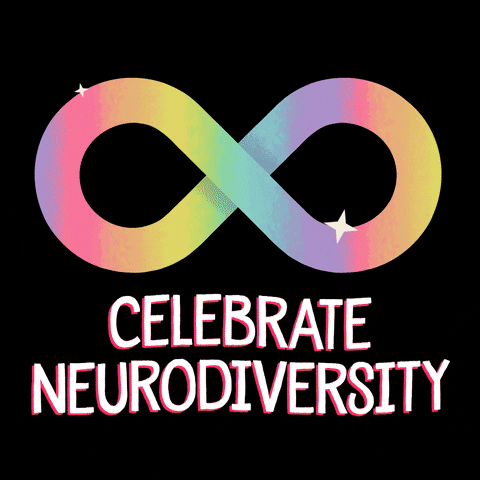

Am I neurodivergent? What exactly is neurodivergence? Is there a test for that? You might have asked yourself these questions. Worry not, because our quiz comes to your aid today. Find out the answers to your problems by taking our neurodivergent test!
“Neurodivergent” means that somebody’s brain functions differently than the “typical” person’s brain. It’s not a medical term, and neurodivergent isn’t a disability or a disorder. It’s simply a way to illustrate differences in learning and processing information.
The opposite of neurodivergent is neurotypical, which refers to a person whose brain functions and processes things in a typical, standard way. An individual like that might not even realize they’re neurotypical because they never needed to consider that. They most likely reached their developmental milestones at a standard time, and as adults, they don’t need to wonder if their brains work differently than others.
Sociologist Judy Singer created the term neurodiversity which describes the idea that everyone understands the world and interacts with it differently. There is no one correct way of thinking or behaving and having a neurodivergent brain doesn’t have to be a burden.
Being neurodivergent can have its challenges. Some neurodivergent people might struggle with social situations or be overwhelmed by environmental triggers like noise or crowds. Neurodivergent individuals often have challenges that their neurotypical peers won’t have to worry about.
However, having an atypical brain can be beneficial too. Neurodivergent people might have better memory and the ability to solve mathematic equations in their heads or picture 3D objects effortlessly.
Discover your spiritual gifts.
“Neurodivergent” is not a medical condition. Not all neurodivergent brains work in the same way, and what is considered “typical” for one person or culture might not be typical for someone else. That’s why the symptoms of neurodiversity can vary from one individual to another.
Here are some signs of neurodivergence in adults and kids that could suggest atypical brain:
Are you a stressed person? Find out your stress levels.
People who are neurodivergent can have any of the following conditions. Here are several types of neurodivergence:
Find out if you could be on the autism spectrum.
You are regarded as neurodivergent if you have one of the disorders mentioned above. If you weren’t diagnosed, but descriptions of some of them sound familiar, and you think you could be neurodivergent, there’s no harm in reaching out to a healthcare professional. A doctor can recommend a specialist who who will help you identify what’s going on with your brain.
There are many neurodivergence tests and quizzes available online. They won’t replace an official diagnosis but can make sense of some of your behaviors and feelings and give you the validation needed to talk to a doctor. We have a neurodivergent test for you!
Do you think you’re sensitive?
Neurodivergence often goes undiagnosed in adults due to stigma and misinformation surrounding it. They might struggle with social dynamics in the workplace or their social groups, have difficulties with executive functioning or other “typical” skills, and not realize their issues stem from being neurodivergent. You can seek advice at neurodivergent test NHS website.
There are screening tools that assess the possibility of an individual having any of the disorders that fall under the neurodivergent umbrella.
How empathetic are you? Discover your empathy level today.
RAADS-R Test is an example of a neurodivergent test. The Ritvo Autism Asperger’s Diagnostic Scale is a self-administered questionnaire created to identify autism spectrum disorder in adults. It includes 80 questions, each giving your four choices to pick from. The RAADS-R measures four different areas: language, social behaviors, sensory and motor skills, and interests.
The Neurodivergent Music Test is a test that plays separate parts of a recording in different headphones, creating a unique audio effect called 8-dimensional audio. Many neurodivergent people report 8-D audio as beneficial for sensory overload, stress, and anxiety. It is supposed to help focus, memory, relaxation, induce a positive mood and stimulate the brain.
Bangor Dyslexia Test is a neurodivergent test for children that measures oral and phonological skills, basic math skills, and verbal short-term memory without taking into account literacy ability. The test can be also used for adults.
Do you believe you might be neurodivergent? Find out if your brain is neurodivergent or neurotypical with our Am I Neurodivergent quiz free of charge for all! Share the test with your friends.